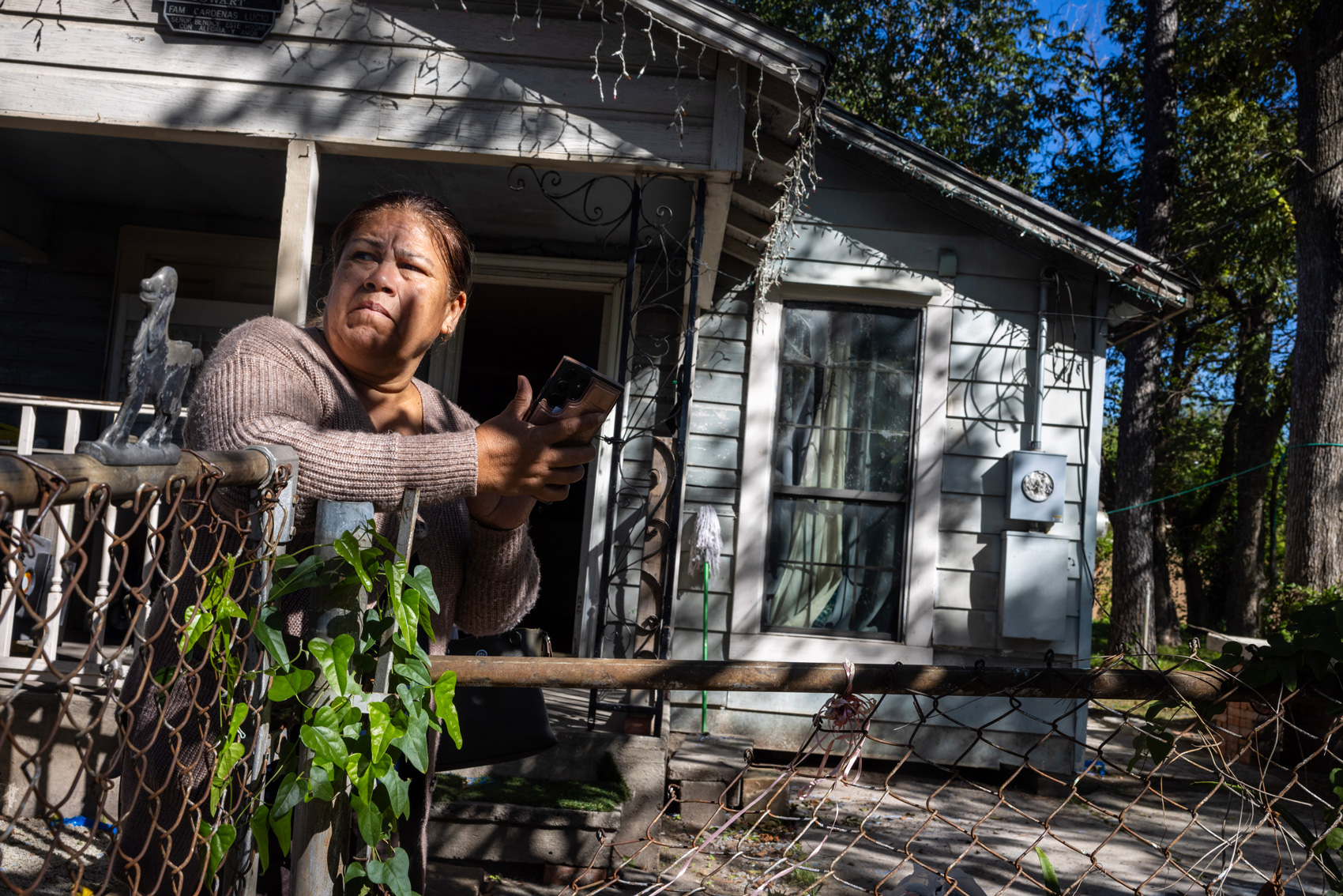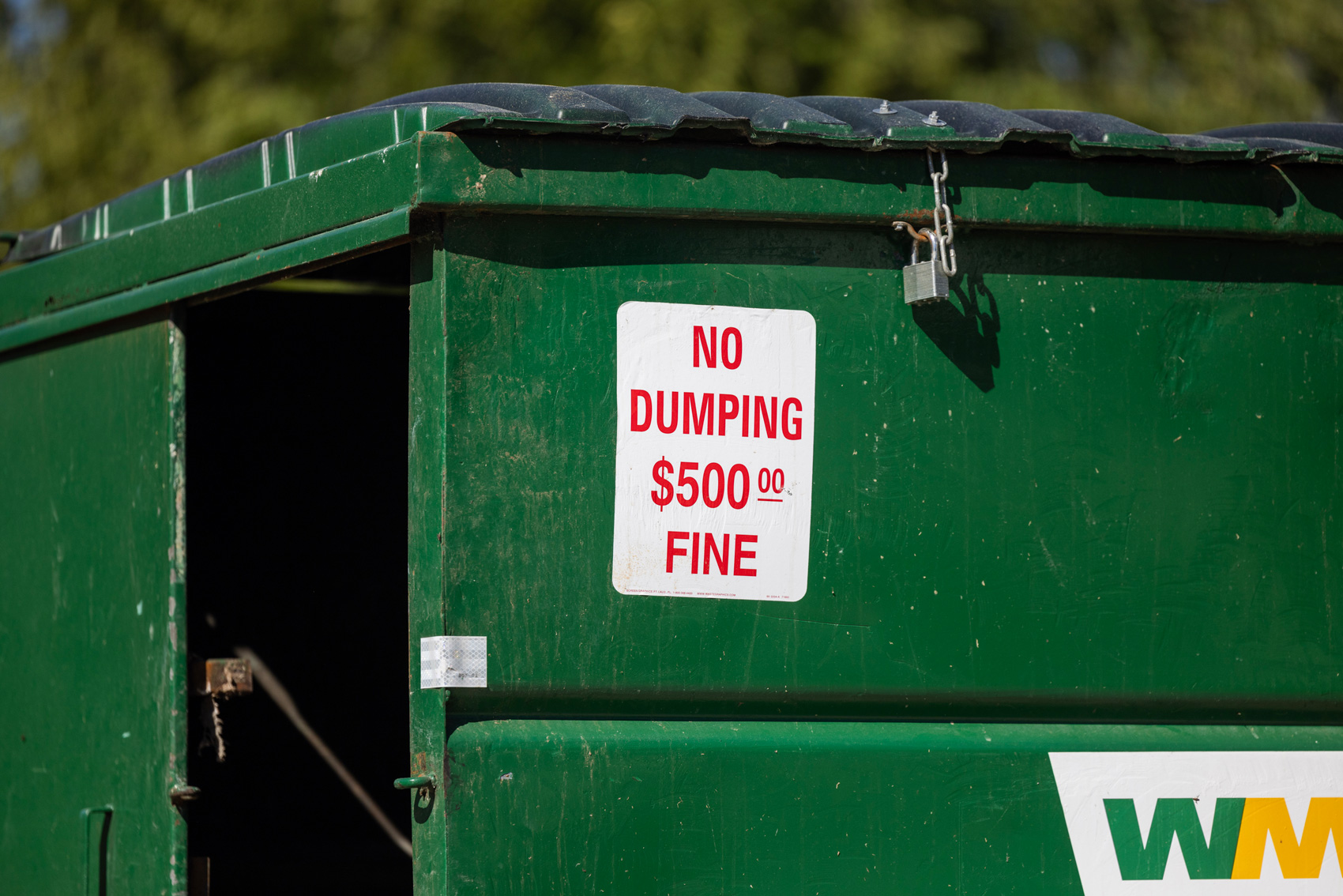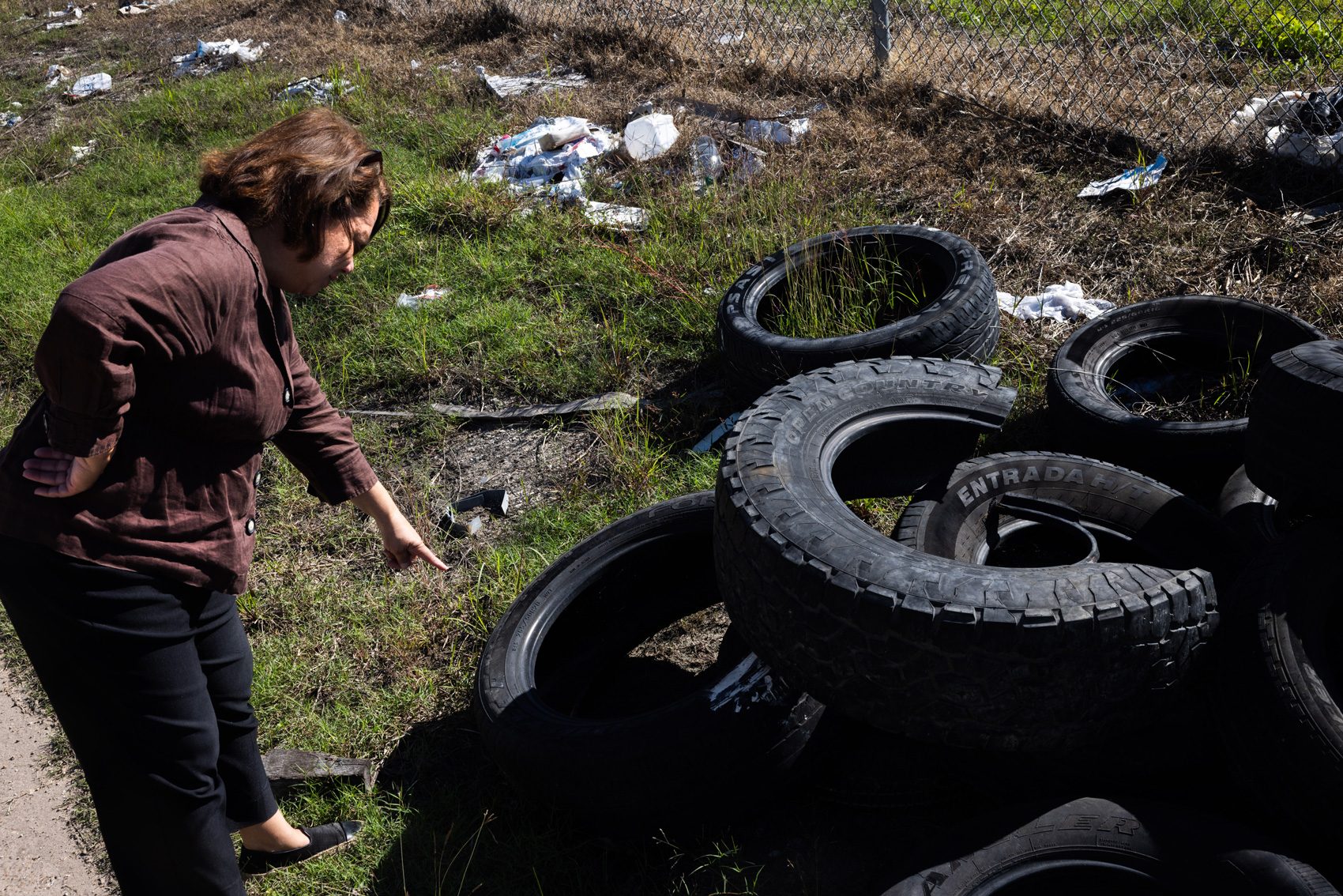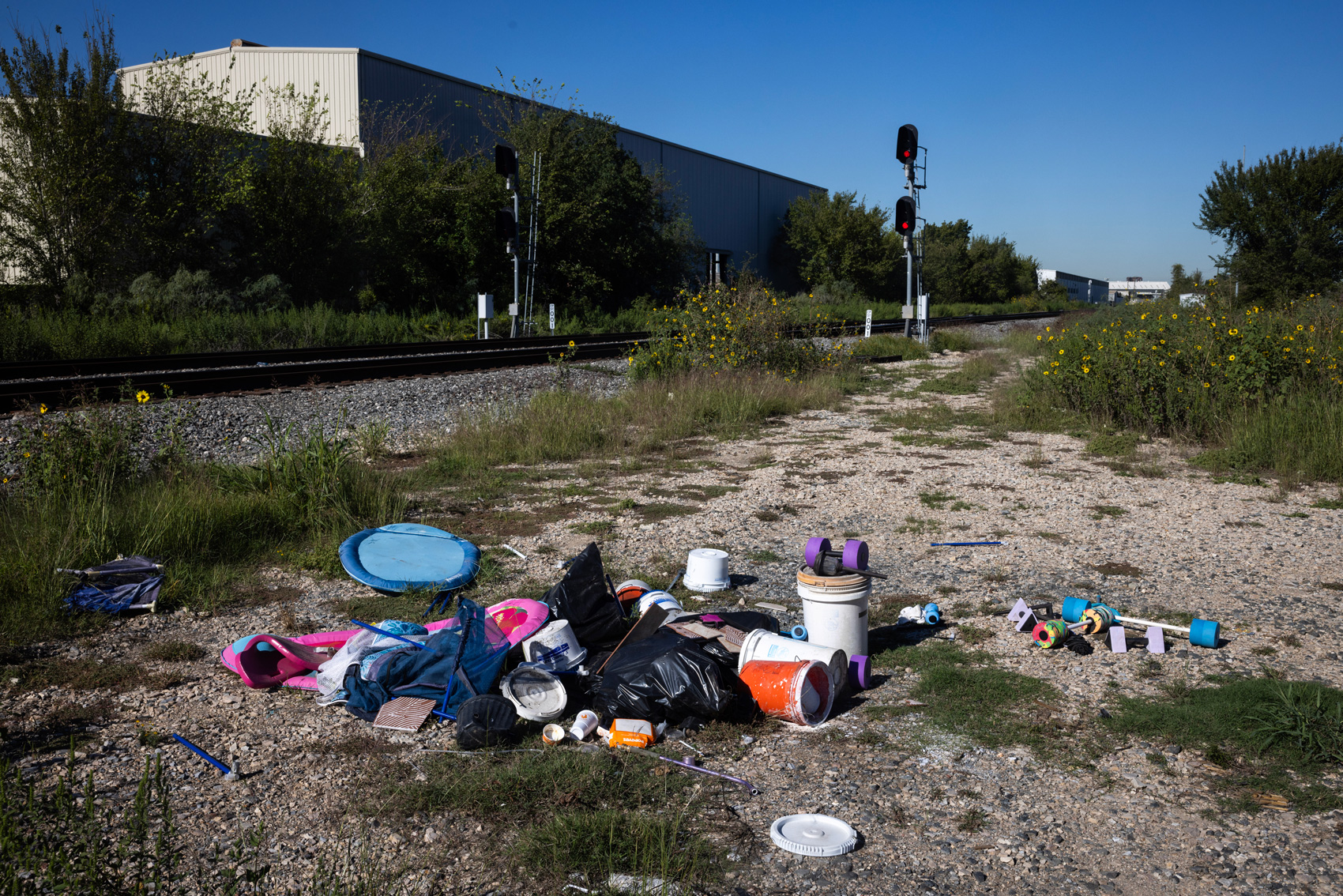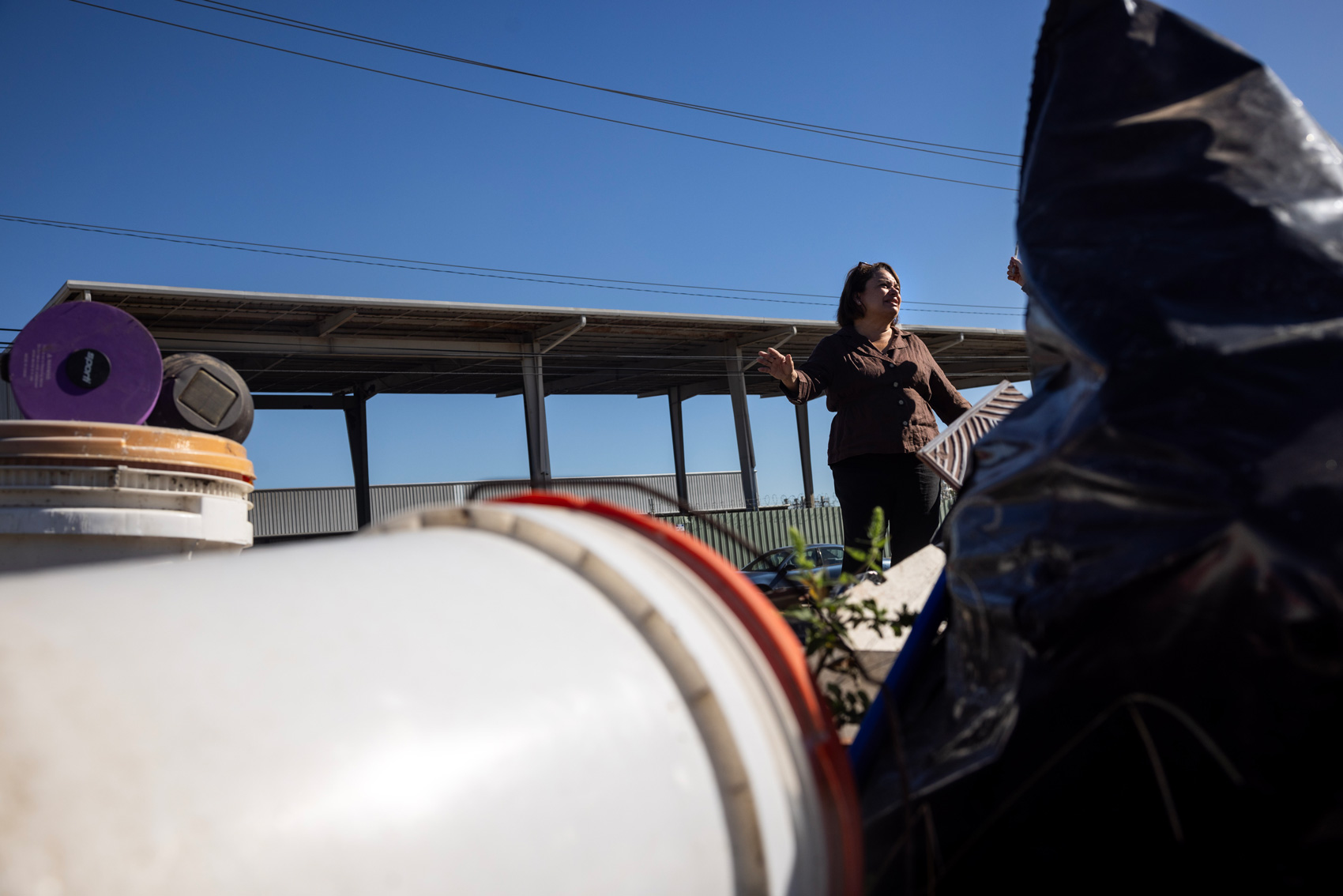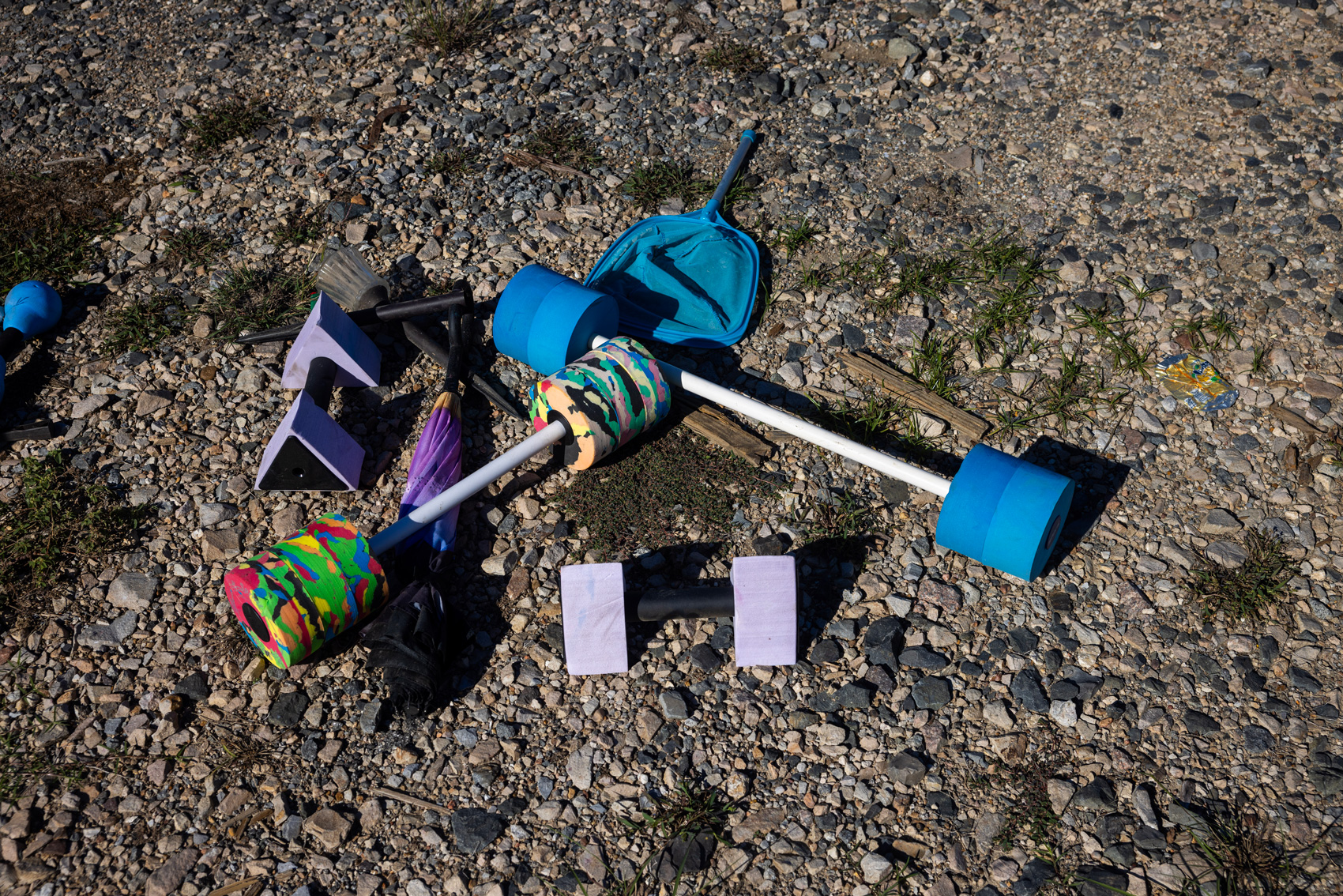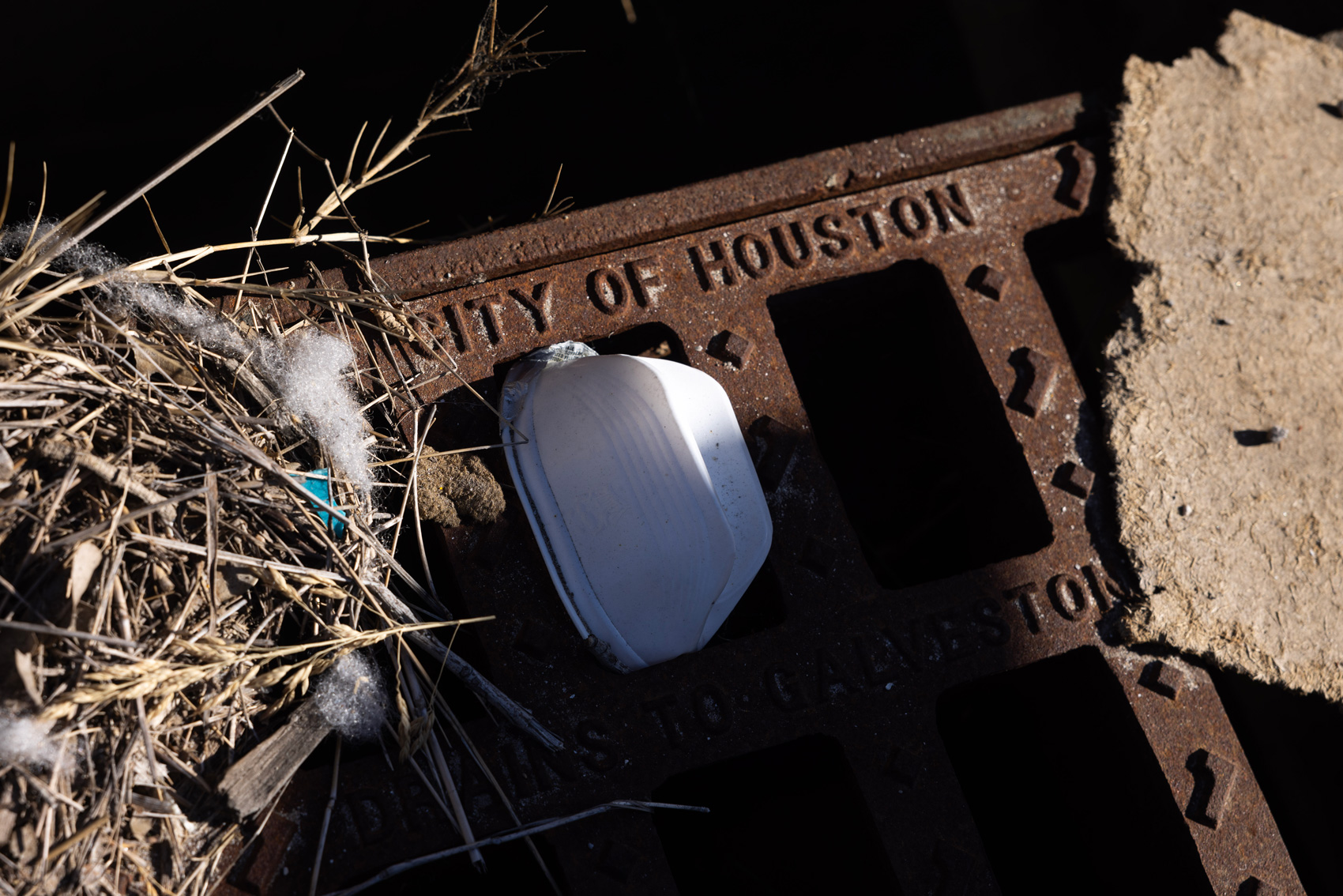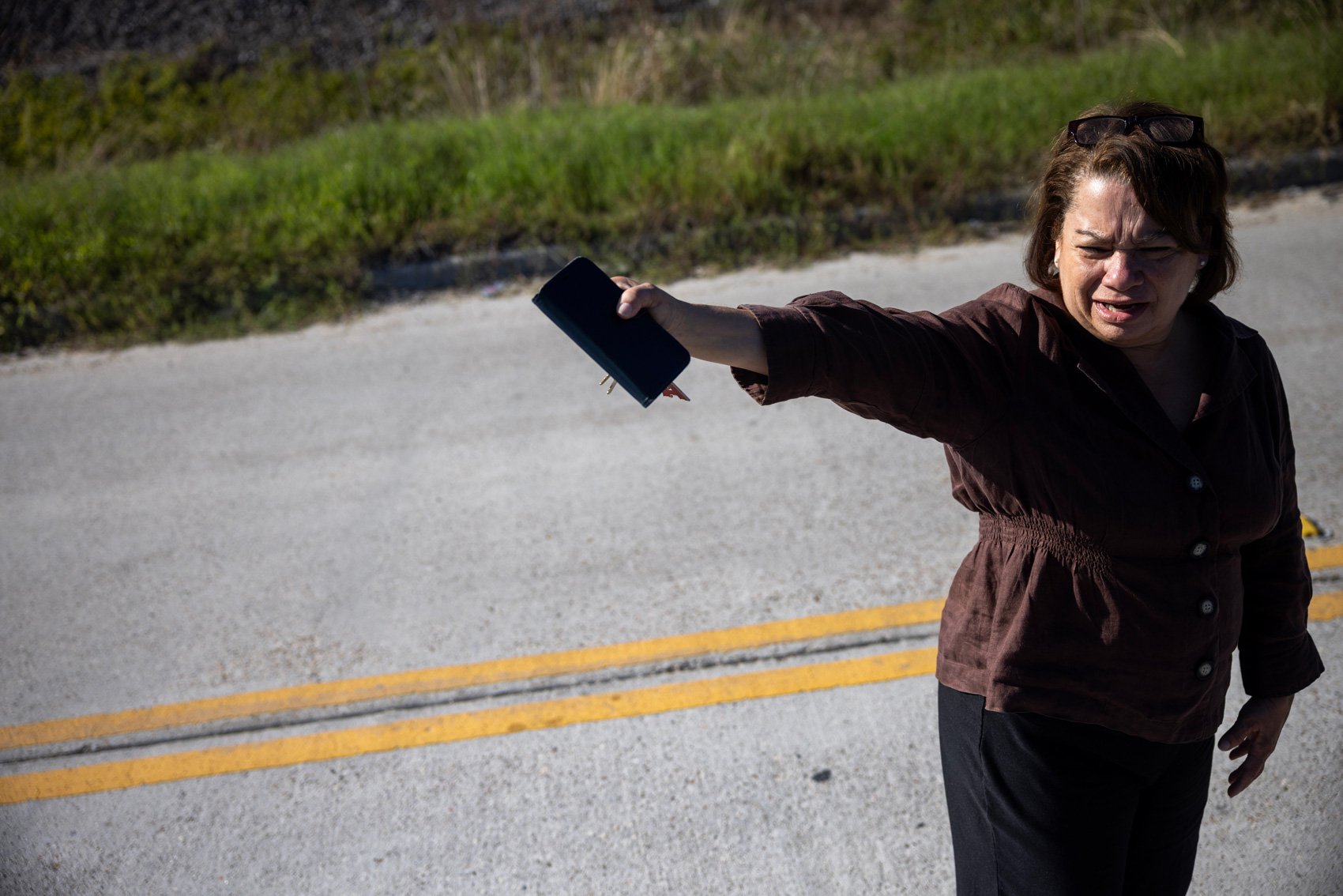|
Getting your Trinity Audio player ready...
|
One morning this week, a half-dozen tires and some wooden planks sat in the dirt outside Marta Gaona’s home. The night before, she heard a truck or a car speed by, and said she could hear the tires being tossed out.
The 30-year Denver Harbor resident said the city eventually will come out and pick up the mess. But another pile soon will take its place, she added.
“Imagine someone dumping trash in your yard all the time,” Gaona said in Spanish. “This is my land and look what’s happening.”
Illegal dumping has been a problem for residents and neighborhoods across Houston for decades. Furniture, chemicals, toys, old cars, scrap metal get tossed out of vehicles – sometimes by the truck-full – in neighborhoods such as Denver Harbor, Trinity Garden and Houston Gardens, historically under-served Black and Brown communities.
In 2022, for example, there were 59 calls to the city’s 311 helpline about illegal dumping in Denver Harbor, according to the city’s data. So far this year, there have been 46 calls.
Meanwhile, in the more affluent River Oaks area, there were only 16 calls about illegal dumping in 2022 and 2023 combined.
Earlier this year, the city launched One Clean Houston, a $17 million program to combat illegal dumping.
City Hall also reached a three-year agreement with the U.S. Department of Justice to address illegal dumping after a civil rights complaint alleged discriminatory practices by the city.
Campaign issue
The pervasive problem has made its way to this year’s mayor’s race, where candidates have promised to crack down on dumpers, launch neighborhood cleanup initiatives and improve city services that may be discouraging residents from getting rid of their garbage legally.
The topic often comes up at candidate forums and debates in the context of public safety, which has been the primary issue of concern among voters and candidates on the campaign trail. Candidates say illegal dumping is a symptom and a cause of other types of crime.
“Houston is an unkempt community,” state Sen. John Whitmire said this week. “Great community, great people, but when it comes to litter, illegal dumping, infrastructure, Houston has needs that are not being met by City Hall.”
A September poll by Rice University’s Kinder School for Urban Research found 26 percent of Houston residents said illegal dumping is one of the top environmental issues facing their neighborhoods.
Notably, concern about the issue is not spread evenly across the city: Nearly 50 percent of residents in the Northshore, Settegast and East Little York region picked illegal dumping as one of their neighborhood’s biggest environmental issues, the highest of any region polled.
Whitmire recalled attending a first day of school ceremony in 2020 at Highland Heights Elementary School in Denver Harbor. Across the street from the school, he said there was a pile of illegally dumped rubbish “higher than my car.” That long-standing dump site was one of his inspirations for running for mayor, he said.
If elected, Whitmire promised to pursue offenders through camera programs and fines, but also said he wants to make it easier for people to do the right thing by improving the efficiency of city dumps and lowering their cost.
“Encourage people to do it the right way, incentivize it, and when they don’t, then you can enforce it,” he said.
Former councilman M.J. Khan took a similar approach, saying heavy trash collection should be made more frequent, encouraging residents to use that service rather than violate the law.
Businessman and former Metropolitan Transit Authority Chair Gilbert Garcia and former city councilman Jack Christie both said their plans to tackle illegal dumping revolve around tougher enforcement and higher fines for violators. City Council doubled the fine for illegal dumping to $4,000 in 2021.
“Until you make it financially hurtful, people are going to keep doing it,” Garcia said. “We need to triple it. … You’ve got to make it hurtful, and the way to make it hurtful is in their pocketbook.”
Camera surveillance
Candidates largely were in favor of further expansion of programs that monitor illegal dumping hotspots.
Attorney Lee Kaplan called cameras a cost-effective way to catch violators that should be the centerpiece of any city effort.
“We know where the dumping occurs because it happens all the time,” Kaplan said. “If you put some more cameras up there … you can see who is dumping.”
The city and individual council members have erected cameras at frequent dumping sites for years. Candidates say that enforcement, however, has been difficult because of vacancies in the police department.
Kaplan and Whitmire also promised to encourage and organize neighborhood groups and the private sector to participate in neighborhood cleanups.
District I City Councilmember Robert Gallegos said a garbage fee could provide additional funding that would eliminate the need for volunteer groups to get involved altogether.
U.S. Rep. Sheila Jackson Lee’s campaign did not respond to a request for comment.
Ana Gonzalez, president of the Denver Harbor Civic Club, said people think they can get away with dumping in their neighborhood.
“The dumpers don’t think anyone cares about these places and they can just leave trash here,” she said. “You don’t see this in the other neighborhoods and if there is dumping, it’s picked up immediately. It’s just not a thing here. Trash could be out there for weeks.”
City efforts
People who don’t live in the neighborhoods often are responsible for Illegal dumping, said Mark Wilfalk, director of the city’s Department of Solid Waste Management.
“It’s actually done by people or contractors who may be trying to take a shortcut and avoid disposal costs,” he said. “So, they’ll go into some of the underserved neighborhoods and contribute to that blight.”
One Clean Houston, a city program that began earlier this year, is slated to add more grappler trucks, increase the number of surveillance cameras and spend $11 million more on contract abatement services.
The city has installed 10 mobile cameras throughout the city that move around to different neighborhoods. The police department has installed another 17 hidden cameras through its environmental crimes unit, with plans to expand that to 40 cameras.
The Harris County Environmental Crimes Unit also is expected to double its surveillance cameras from 120 to 240 this year.
“What’s really made a difference are some of the security cameras that we’ve placed out throughout the city and some of these illegal dumping areas, where I can tell you the volume of debris has decreased,” Wilfalk said.
The city also has been working to address 311 calls for illegal dumping quickly. In October 2022, the city’s 311 illegal dumping tracker said the average time the city took to pick up dumped trash was 38 days. The tracker now reports that, on average, the clean-up is taking a little more than 10 days.
Whitmire said the One Clean Houston program needs to be improved, calling it “a nice sound bite” that is doing very little.
Gallegos, who voted in favor of One Clean Houston’s creation, said the program is a good idea that he intends to continue. He acknowledged issues with a lack of funding and miscommunication between the city and its contractors, however.
The key to improving the program. Gallegos said, is to implement a garbage collection fee that will free up funding currently used by the Solid Waste Department that can be shifted to One Clean Houston and law enforcement efforts.
Gonzalez said she also has not noticed much change in Denver Harbor since One Clean Houston’s creation. The same spots are getting hit, she said, and she still is calling 311 regularly.
“It’s dangerous for the kids,” she said. “It’s very isolating here at night and not very well lit.”
Gonzalez wants a mayor who actually does what they say they will do. Too many times, she said, candidates will only show up during election season and then forget about the communities.
“I’m hoping things will change, and whoever wins will come through with their promises,” Gonzalez said. “I’m tired of being disillusioned by our city, I want someone who is fair and good.”

